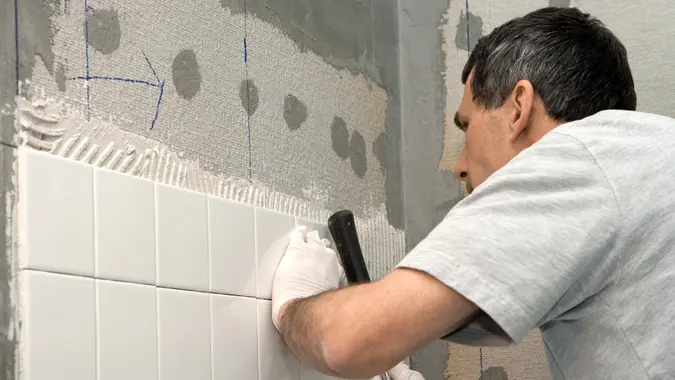6 Signs You’re Spending Too Much on Household Expenses in Retirement

Commitment to Our Readers
GOBankingRates' editorial team is committed to bringing you unbiased reviews and information. We use data-driven methodologies to evaluate financial products and services - our reviews and ratings are not influenced by advertisers. You can read more about our editorial guidelines and our products and services review methodology.

20 Years
Helping You Live Richer

Reviewed
by Experts

Trusted by
Millions of Readers
According to Acts Retirement, housing represents one of the largest expenses in retirement. Whether it’s rent, mortgage, utilities, property taxes, homeowners insurance or maintenance, these expenses can wreak havoc on retirees’ wallets.
Given the necessary expenditures, however, how does a retiree know whether they are spending too much on household expenses? Let’s take a look at some key signs.
Also see five signs your retirement savings isn’t enough to last through 2025.
Dipping Into Savings
It’s one thing to occasionally dip into savings for a special occasion or an unexpected occurrence, but if it becomes a regular habit, that could be a sign that a retiree is spending too much on household expenses.
“Using emergency savings for routine expenses suggests financial strain,” said Brian Rudderow, a real estate investor and owner of HBR Colorado.
Budgets can be extremely helpful here. Be sure to keep an eye on impulse spending and track expenses closely.
Doing Updates That Add No Additional Home Value
When it comes to updates and repairs, Seamus Nally, CEO at TurboTenant, advised that some add value to a home — but some do not.
“You want to avoid spending money on renovations that won’t at least break with how much value they add to your house,” he said. Doing some research prior to the renovation can help determine whether it is a smart investment.
Delaying Necessary Repairs for Nonessential Updates
Neglecting necessary maintenance in the short term because budgeted funds aren’t available can be a key sign that too much money is being allocated to other, less essential home expenses, like landscaping or an addition.
Rudderow also cautioned that delaying necessary repairs can result in larger costs down the line.
Accruing Credit Card Debt
Kevin Shahnazari, founder and CEO of Finly Wealth, previously told GOBankingRates, “When I review retired clients’ finances, rising credit card debt is a major red flag … This behavior can quickly spiral — the average credit card interest rate of 24.59% can devastate a fixed retirement income.”
So while retirees may want to purchase nice items for their home or spend money on costly renovations, it’s important to make sure they’re not accruing credit card debt when doing so, as it could risk their long-term financial security.
Paying Overdraft Fees
Did overdrawing an account to pay for a home expense result in an overdraft fee? This one should be a flashing neon light that a retiree is spending too much.
Not only are they spending too much, but they’re being charged for it. If a retiree needs to overdraft an account to pay for a home expense, they should reconsider whether that expense is a necessity.
Not Paying Bills on Time
According to a 2022 LendingTree survey, 61% of Americans who paid a bill late did so because they couldn’t afford it — not because they simply forgot. And these late payments can negatively affect credit scores.
So if household expenses start resulting in delinquency, it may be time to consider downsizing.
 Written by
Written by  Edited by
Edited by 

























